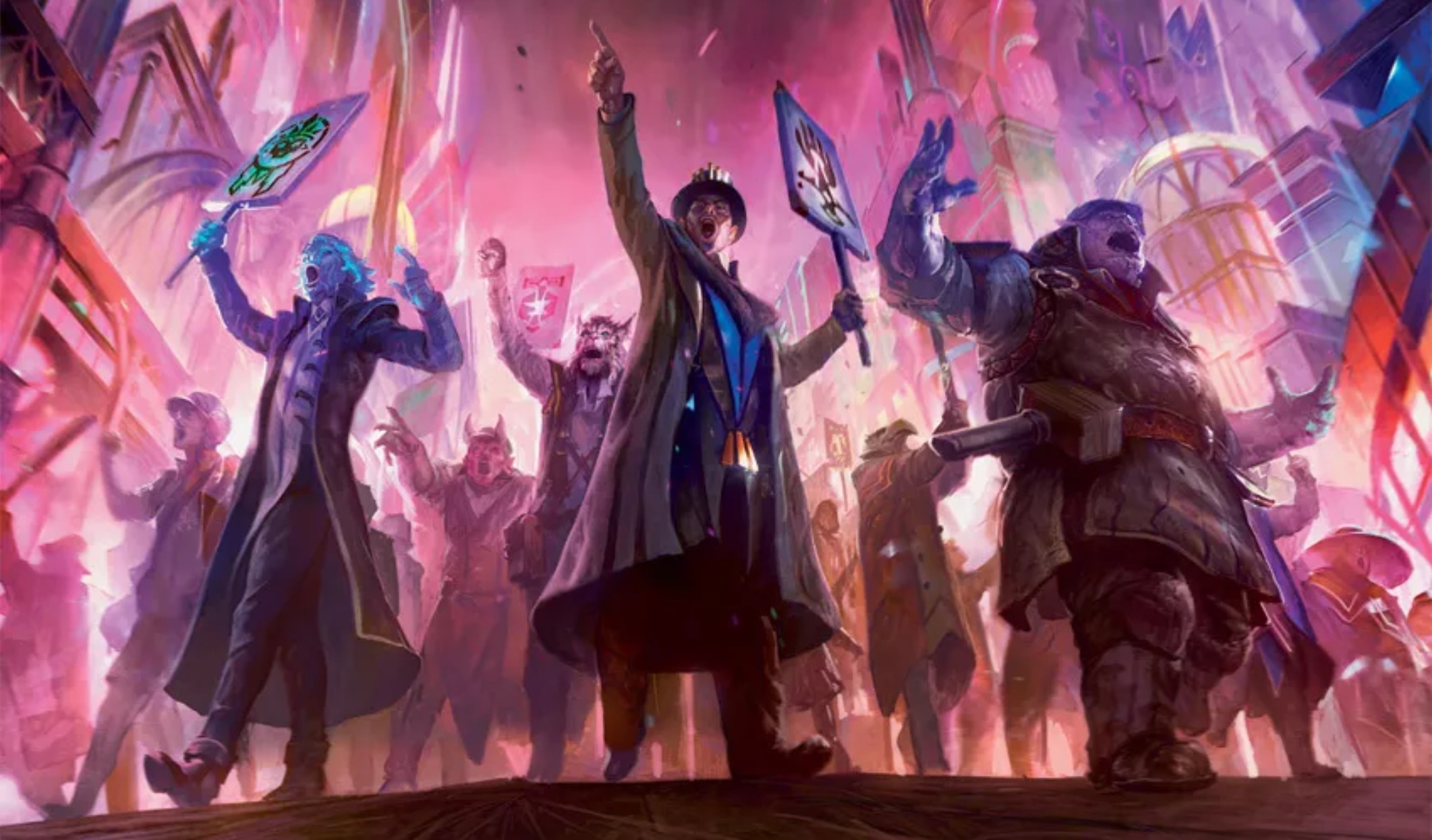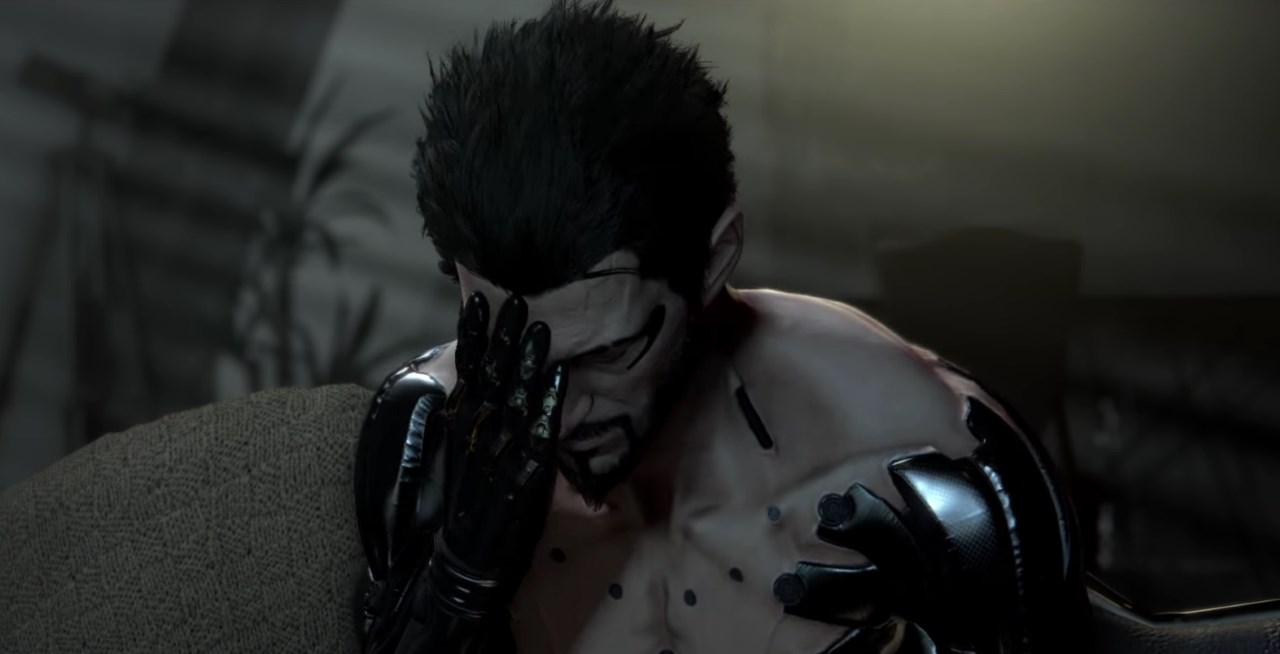SAG-AFTRA is holding a vote to potentially strike against major videogame publishers
With approval from the union's national board, it's now up to the members to decide.

Update 9/8/23: A spokesperson for the videogame producers party to the Interactive Media Agreement provided the following statement to PC Gamer following news of the strike authorization vote:
"We all want a fair contract that reflects the important contributions of SAG-AFTRA-represented performers in an industry that delivers world-class entertainment to billions of players around the world. We are negotiating in good faith and hope to reach a mutually beneficial deal as soon as possible."
Original Story: The national board of actors' union SAG-AFTRA has sent a strike authorization vote to members over the renegotiation of its Interactive Media Agreement. The potential strike would affect voice acting and motion capture work for major publishers in the industry.
The current Interactive Media Agreement was set in 2017 and was originally supposed to expire in 2020. As reported by Variety, it was first extended to 2022, and then had another year's extension after that. SAG-AFTRA notes that the agreement's signatories include major videogame publishers like:
- Activision Productions Inc.
- Blindlight LLC
- Disney Character Voices Inc.
- Electronic Arts Productions Inc.
- Epic Games, Inc.
- Formosa Interactive LLC
- Insomniac Games Inc.
- Take 2 Productions Inc.
- VoiceWorks Productions Inc.
- WB Games Inc.
This agreement is separate from SAG-AFTRA's negotiations for its TV, theatrical, and streaming contracts that underpin the current historic double strike with the Writers' Guild against major Hollywood studios.
Though the agreements are separate, the potential for companies to abuse generative AI tech at the expense of performers is front and center for both. SAG-AFTRA president Fran Drescher (yes, that Fran Drescher from The Nanny and This Is Spinal Tap) explains: "Here we go again! Now our Interactive (Video Game) Agreement is at a stalemate too. Once again we are facing employer greed and disrespect. Once again artificial intelligence is putting our members in jeopardy of reducing their opportunity to work.
“The overlap of these two SAG-AFTRA contracts is no coincidence, but rather a predictable issue impacting our industry as well as others all over the world. The disease of greed is spreading like wildfire ready to burn workers out of their livelihoods and humans out of their usefulness. We at SAG-AFTRA say NO! Not on our watch!”
Keep up to date with the most important stories and the best deals, as picked by the PC Gamer team.
Elias Toufexis, the voice of Deus Ex's Adam Jensen and Starfield's Sam Coe, echoed those concerns about AI in a recent conversation with PC Gamer before the strike authorization vote went out: "We're very worried about AI, especially in games for voiceover. I do a lot of performance [motion] capture, and I've spotted my performance in another game, and then I'll get a small check and no credit."
"I'll go, 'Okay, well, we need to fix that, right?' No, in fact, with AI we've doubled down on that, because now we can take you and use you over and over again."

There's a very real fear that AI tools trained on motion capture or vocal performances will give videogame publishers the ability to lowball or even box out performers, all while drawing on voice or animation assets fundamentally derived from other actors' prior work without further payment or attribution. Visual artists have experienced something similar with image generation, and the open copyright question here has led to a major lawsuit by Getty Images against Stability AI, as well as a crackdown by Valve against games with AI-generated assets on Steam.
One thing that simplifies the upcoming Interactive Media negotiations vs. the film and TV stalemate is that videogames haven't experienced anything close to the revenue upheaval brought on by the streaming model. While digital distribution, corporate consolidation, and the indie boom have drastically changed the face of the games industry in the past 10 years, performers who contribute to videogames are still largely paid in the same way.
Broadcast TV being overtaken by streaming fundamentally changed how those writers and actors are paid, with larger upfront sums failing to balance out the virtual death of residuals, or smaller payments for when a show is put in syndication or otherwise re-broadcasted. Residual payments are largely unheard of in the games industry, for performers and developers both.
Voting for SAG-AFTRA members will run from September 5 to the 25th, with the union's negotiations with videogame publishers resuming on the 26th. A successful vote to authorize a strike also doesn't mean one will necessarily happen—it merely opens up the option for SAG leadership depending on how negotiations proceed.
Ted has been thinking about PC games and bothering anyone who would listen with his thoughts on them ever since he booted up his sister's copy of Neverwinter Nights on the family computer. He is obsessed with all things CRPG and CRPG-adjacent, but has also covered esports, modding, and rare game collecting. When he's not playing or writing about games, you can find Ted lifting weights on his back porch.

